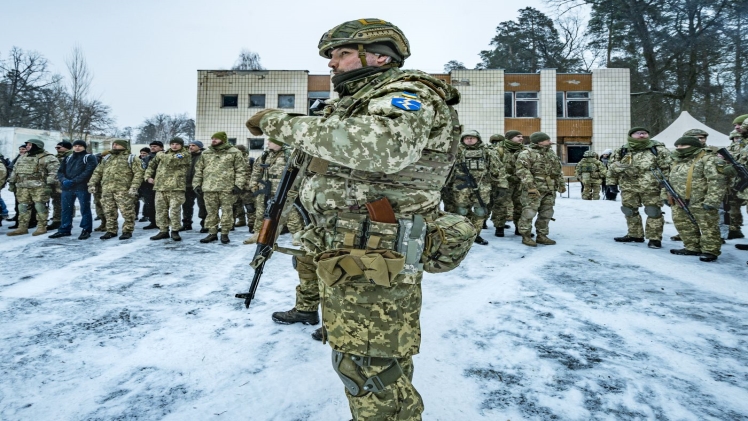This article provides an overview of the Situation in Ukraine, including the escalation of the conflict, efforts to secure humanitarian aid for displaced people, and U.S.-NATO relations. While the situation in Ukraine remains volatile, there are several key factors to consider https://kruthai.com/read-blog/96218. The following are three important questions to ask about this situation:
Russian-Ukrainian conflict
The Russian-Ukrainian conflict in Ukraine has been a topic of intense debate since it began. The US and its allies accuse Russia of invading Ukraine with the goal of causing a civil war. In June, Russia began sending arms and munitions to the separatists. The ‘genocide’ claims that have been made are false. While both sides accuse the other of provoking the conflict, Russia denies the accusations.
The Soviet Union imposed language policy in Ukraine in order to limit ethnic and racial tensions. The Communist-dominated Parliament resisted, appointing four representatives to the National Assembly. Nashe Radio, a Russian-language radio station, became a popular station. Kbit FM, a Russian pop radio station in the capital Kyiv, devoted itself exclusively to Russian pop music. By 2004, 90 percent of books sold in Ukraine were imported from Russia.
Efforts to de-escalate conflict
Efforts to de-escalate conflict in Ukraine have stalled and are at risk of becoming futile. A recent UN report estimated that more than ten million civilians have been displaced and over 1,800 people have been killed by the conflict in Ukraine. The escalation is occurring due to a number of reasons, including Russian proxies and propaganda.
In the first instance, the Russians extended their air strike range to parts of Ukraine and attacked 26 health-care facilities. Meanwhile, the Russian defense minister warned that thousands of people from the Middle East were ready to fight for their country. The United Kingdom also announced sanctions against seven Russian billionaires. Moreover, the International Monetary Fund approved $1.4 billion in emergency financing for Ukraine. The World Bank also approved the sale of small arms to Ukraine, but did not approve the sale of larger weapons.
In a further step toward a peaceful resolution, the Russian and German leaders agreed to send their military experts to the Ukraine to mediate. Russian military advisors have been deployed in eastern Ukraine. However, the United States has been hesitant to offer military assistance. The United States has called for restraint and patience on the part of both sides. The World Food Programme has appealed for an end to the conflict.
Efforts to secure humanitarian aid for displaced people
The displaced people of Ukraine are suffering from an escalating humanitarian crisis that is hindering the provision of life-saving aid. There are 13 million people stranded in the conflict zone and there is little hope for their safety as ongoing attacks make it impossible for them to access evacuation centers. The international community must step up efforts to provide adequate security guarantees for these people so that they can access life-saving assistance.
The needs of these displaced people are varied, but the U.S. Government has provided assistance for both physical and psychological support. Health assistance includes vaccinations, primary health care, and sexual and reproductive health assistance. Basic household items and water containers are also provided by humanitarian organizations. The United States is also providing $5.5 million in humanitarian assistance to support the safe return of up to 20,000 third-country nationals.
Impact on U.S.-NATO relations
Russia and the West have been arguing over how to respond to the Ukraine crisis. Both sides have pointed to the importance of U.S.-Russian relations. Washington and Brussels have failed to communicate clearly on these issues, which has created a climate of distrust and misunderstanding. Russia’s recent annexation of Crimea has only exacerbated this tension. Both sides have criticized the other. Washington has argued that Ukraine is a victim of Russian aggression. However, this argument has been widely refuted by experts and argues that both sides have been misguided and contradictory.
While Russia and NATO share a common history, there’s no guarantee that Ukraine will join the organization any time soon. Ukraine’s membership in NATO is dependent on unanimous buy-in from all 30 member countries. However, many nations oppose this move. Ukraine doesn’t meet the prerequisites to join, so a potential Russian military engagement could result in conflict with 27 other NATO nations. This is an untenable position for Kiev.

